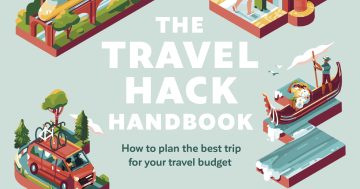Mike Winters* encourages people to take up the ‘no-spend day’ challenge to help them save money.
 For many people, a no-spend day isn’t an exercise in budgeting during the pandemic — it’s a daily reality.
For many people, a no-spend day isn’t an exercise in budgeting during the pandemic — it’s a daily reality.
But others splurge in what has been dubbed “spendemic” retail therapy, as evidenced by the recent rise in loans for discretionary items, according to the loan comparison site Credible.
If your spending feels overly therapeutic, a no-spend day might be in order.
The benefits of a no-spend day
A no-spend day is a day in which you don’t spend on “wants,” which are things you would like to have but don’t need (like shelter or utilities) — including expensive takeout, store-bought coffee or pay-per-view movies.
A no-spend day could be a permanent part of your weekly schedule, or a short-term challenge.
The idea is that by freezing spending for a day, you’ll be more mindful of your spending habits and discriminating about what you buy.
And, of course, the money you save can be a real eye-opener.
Just look at food alone: on average, restaurant meals cost roughly three times more than a home-cooked meal, according to ValuePenguin.
By not spending, say, $30 in a given day on a restaurant meal, you’d be saving around $30 for that day.
If you’re doing one no-spend day a week, that’s $120 saved per month, not including the savings you’ll make by avoiding other discretionary purchases like apps, clothes, or ride-sharing.
Also, knowing what you don’t spend has the benefit of making you feel obnoxiously virtuous and motivate you to save more, effectively gamifying the sober task of spending less.
Tips for planning your no-spend day
- Before you begin, define your spending wants and needs, and cut expenses relating to anything you don’t use at all (whether that be daily or monthly).
- Dedicate your savings to a financial goal, like paying off a loan.
- Tracking what money you save can be tedious, but it can help you stay motivated.
- Schedule activities that are free in advance (museums, hikes, or a good book you already own or check out from the library).
- Pick a day that works best for your spending habits. Monday is easy since most people do their grocery shopping on the weekend, and it will allow you to plan home-cooked meals ahead of time.
- Don’t beat yourself up if you fail. It’s meant to be a challenge.
*Mike Winters is a contributor at Life Hacker.
This article first appeared at lifhacker.com.au.











